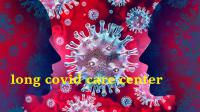Категории
Теги
-
#Sex Doll
#ai sex dolls
#love doll
#AF doll
#sex toy
#TPE sex dolls
#WM Doll
#Real love dolls
#realistic sex doll
#Silicone Reborn Dolls
#silicone sex doll
#curvy doll
#pregnant sex dolls
#sex dolls for sale
#pregnant love doll
#Real Doll
#Piper Doll
#Sino Dolls
#Sex Dolls
#silicone sex dolls
#COVID-19
#post covid brain fog
#long covid brain fog
#COVID
#Brain fog
#LongCovidCareCenter
#Long COVID-19 Symptoms
#post covid fog
#Neurologic symptoms
#Long COVID
#Memory Loss
#COVID19 headache
#Mild COVID
#Post COVID Fatigue
#Dysautonomia
#POTS
#AsianstarCNC
#CNC machining factory
Архив
How Long COVID Causes POTS and Autonomic Dysfunction
-
POTS is an autonomic dysfunction, a disorder of the autonomic nervous system (ANS). The ANS regulates functions that we do not consciously control, such as blood pressure, heart rate, and body temperature. My heart beats faster when I stand up, my head hurts, I can't think as clearly as I used to, and other long covid brain symptoms. This is a condition called postural tachycardia syndrome (POTS). Multiple studies have shown that prolonged COVID can lead to POTS.
What is Autonomic Disorder?
Dysautonomia is a general term used to describe several medical conditions that share a common problem: malfunctioning of a part of the nervous system called the autonomic nervous system (ANS). The ANS regulates automatic body functions that we don't need to think about, such as blood pressure, heart rate, digestion, breathing, body temperature, kidney and bladder function, and more.
This branch of the nervous system has two components: the sympathetic nervous system (SNS) and the parasympathetic nervous system (PNS). SNS is known as "fight or flight" mode, and it's active whenever your body needs a quick response. It increases your heart rate and stimulates blood flow to your muscles when you need to flee from danger or cope with stress.
Instead, the PNS is responsible for the body's calming functions, such as digestion. It's called the "rest and digest" part of the ANS. It lowers heart rate, stimulates digestion and regulates bladder function. In a healthy person, both components are constantly changing during the day. For example, when you have an important meeting at work, SNS may be more active, but when you relax with a cup of coffee, PNS takes over.
If one of these components stops working properly, it can affect your entire body. Think of the dominance of SNS and PNS as a tug-of-war. Usually, SNS wins, but sometimes PNS backs off for a while before SNS takes over again. For example, a rapid transition from SNS-dominant to PNS-dominant and back again is why you might have a racing heart but then suddenly have diarrhea. People with autonomic disorders have difficulty regulating vital bodily functions such as breathing, blood pressure, heart rate, urinary function, body temperature, and more.
Getting a POTS diagnosis can be challenging, according to How Long Will Symptoms Of Brain Fog Last After Being Infected With Covid-19?. Many doctors, unfamiliar with the condition, may view the symptoms as lingering effects of the coronavirus disease or even psychological signs of stress and mental health issues.
POTS can be debilitating or at least cumbersome to deal with and require special treatment to reduce symptoms. At LongCovidCareCenter, we see many patients with POTS or other forms of autonomic dysfunction after suffering a concussion. Often, our patients come to our clinic after months or even years of experiencing post-concussion symptoms including dizziness, brain fog, and headaches.
Is Dysautonomia the Same as POTS?
Autonomic dysfunction and POTS are not the same, but they are related: POTS, short for postural orthostatic tachycardia syndrome, is a form of autonomic dysfunction in which a person's heart rate increases while standing. A similar condition is called orthostatic hypotension (OH). OH patients experience a drop in blood pressure when standing upright rather than affecting heart rate.
Both conditions fall under the umbrella term of orthostatic intolerance. The term erectivity refers to the ability of the body to stand upright. When you stand up, your body needs to adjust your heart rate and blood pressure to prevent blood from pooling in your legs and to ensure enough blood reaches the brain.
Failure to do so may result in dizziness, lightheadedness, or even fainting. Usually, symptoms lessen when you sit or lie down. If symptoms start when you are already standing, it cannot be classified as orthostatic intolerance.
While LongCovidCareCenter does not formally diagnose patients with POTS or other forms of autonomic dysfunction, we do detect associated symptoms that are often sufficient to identify autonomic problems. For this reason, our treatments are specifically designed to treat the root of the problem, ANS dysfunction, rather than address individual symptoms.
Although Long COVID autonomic dysfunction is recognized as a medical condition, we still don't know much about the disease. This article attempts to reveal as much as possible, including how long COVID can cause POTS and how our post covid brain fog treatment program is designed to help COVID-19 patients.

